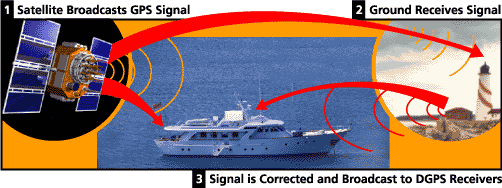
Boy, are they expensive.
But I have to do it, so I have decided to share some the resources I have come across.
First of all....................DON'T walk into the college bookstore and buy all new books from them...this is where you will pay top dollar. So unless you are made of money...DON'T!
- Buy used at the bookstore: This is the most commonly suggested method, but for good reason. You can save a lot of money just by foregoing that new book smell. Your college book store will sell used copies of the required books, but be warned that these are usually the first copies to sell out. So you might want to get there early to ensure you don't miss out and can pick up the copies in the best condition.
- Buy used from other students: Check out postings around campus or school-run websites for used books. A lot of students prefer selling their used books this way instead of going through the store, and you can often get a better deal than at the bookstore.
- Buy online: If you have access to your book lists ahead of time, you can also save a bundle online. Amazon.com was my site of choice, but there are a number of sites that specialize in textbooks.
- Buy at a "normal' bookstore: Many class books, especially those that aren't textbooks, can be found at bookstores like Borders or Barnes & Noble. These stores have rewards programs and frequent coupon deals that can garner some unexpected savings.
- Don't buy the books at all: Instead of buying the books, just use the copies at your school library. It's not ideal, but you can get by if you really have to. Most colleges have course reserve lists at the library that contain the class books with a restriction on the check-out duration. While the reserve restricts your time with the book, it also ensures that it's there when anyone in the class needs it. If you've ordered your books online, this is also a good way to bridge the gap between class starting and the delivery of your books.
- Share: I've also known some people to share copies of the book with classmates or friends. It's not the most convenient, so choose your partners well. If you're able to make it work, it's another great way to save.
- Read the syllabus: A lot of times, teachers will add suggested reading to their book lists, but these won't actually be used in the course. Your best bet is to only buy the books for which there are assignments on the syllabus. You can always get the suggested reading books at the library. Since syllabi are often distributed on the first day of classes, you have two options: you can wait to buy books after the first class, or you can buy ahead of time and keep the receipt to return the unnecessary books. This is my favorite tactic because it allows me to buy early and get the deals on used books without committing myself to extra books. Just be aware of your store's return policy- you don't want to buy so early that the return period ends before classes even start.
Here is a great resource/download to help you as well:
>> Download the Cheap College Textbook eBook here!
Best Bargin Hunting
Please share with us any other resources, websites etc you may have!

















 And for the stangest walls in the whole world..........................My daughters room.................................................................................................
And for the stangest walls in the whole world..........................My daughters room.................................................................................................









 With my oldest daughter off from college yesterday and off from work...we decided to finally get the tree up. They did it all with a little directions ( unwanted as it may be ) from mom.
With my oldest daughter off from college yesterday and off from work...we decided to finally get the tree up. They did it all with a little directions ( unwanted as it may be ) from mom. They did an awesome job. The tree was loaned to us from a dear, sweet, friend from church and it is the most beautiful tree I have ever had in my house. It looks so real....It is really big and we moved the room around to make it fit....Only problem is, if anyone comes to the front door....we can't get it open....OH NO!
They did an awesome job. The tree was loaned to us from a dear, sweet, friend from church and it is the most beautiful tree I have ever had in my house. It looks so real....It is really big and we moved the room around to make it fit....Only problem is, if anyone comes to the front door....we can't get it open....OH NO! While the girls put up the tree, I was off to the kitchen to make up a batch of sugar cookie dough to use in our homeschool party. We baked and decorated the sugar cookies of all shapes and then we split up and delivered them to many deserving folks in our community...I hope they all have health insurance...lol
While the girls put up the tree, I was off to the kitchen to make up a batch of sugar cookie dough to use in our homeschool party. We baked and decorated the sugar cookies of all shapes and then we split up and delivered them to many deserving folks in our community...I hope they all have health insurance...lol









 The Global Positioning System (GPS) is a satellite-based navigation system made up of a network of 24 satellites placed into orbit by the U.S. Department of Defense. GPS was originally intended for military applications, but in the 1980s, the government made the system available for civilian use. GPS works in any weather conditions, anywhere in the world, 24 hours a day. There are no subscription fees or setup charges to use GPS.
The Global Positioning System (GPS) is a satellite-based navigation system made up of a network of 24 satellites placed into orbit by the U.S. Department of Defense. GPS was originally intended for military applications, but in the 1980s, the government made the system available for civilian use. GPS works in any weather conditions, anywhere in the world, 24 hours a day. There are no subscription fees or setup charges to use GPS. Newer Garmin GPS receivers with
Newer Garmin GPS receivers with 
























